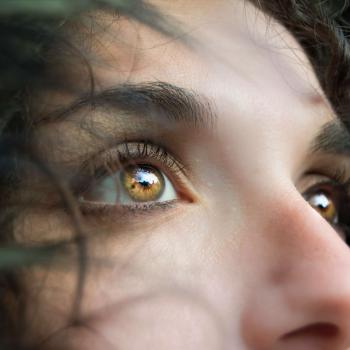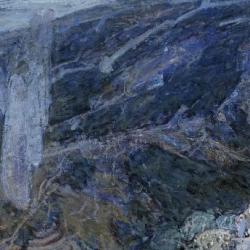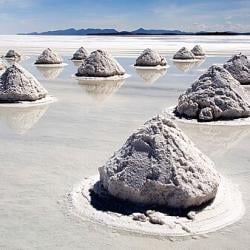I came up with two children -- child soldiers in Africa, they've been forced to fight a war. They escape their army, and then they're lost in a forest, like in [Rebbe Nachman's] Story of the Seven Beggars. One song is called "We Will Walk" -- it's about continuing on, no matter what happens. "Two Child One Drop," from "Shattered" -- it's pretty clear, it's about killing someone, which Hasidic tradition compares to embarrassing someone. It's like putting a gun up to someone's head and making them do something.
Is it something that you expect people to pick up on and intuit when they listen to your music -- or do you think they're just going to go, wow, that's some intense violent imagery, and move on?
I don't know. A lot of it's not explicit in the songs, Africa or Rebbe Nachman -- maybe when they read this interview with you, they'll get it. But I think the ideas come through.
Rabbi Rosenstein and I came up with thirty categories of ideas, of stories -- and then we pared the concepts down to words. Then we went into my studio in Green Point, just Aaron [Dugan, Matisyahu's longtime guitarist] and I -- Aaron would play and I'd beatbox. We'd jam for an hour without stopping.
Then I'd listen to the sound. It was some really dark stuff we were coming up with. I'd take the music, write down some lyrics, and form the songs that way. We brought in other people - I flew to Jamaica, where we brought in [legendary drum and bass production team] Sly and Robbie. We had the oud player from The Idan Raichel Project, Yehuda Solomon from Moshav singing Hebrew on top of me. The songs ended up in a totally different place from where it started.
Has all the new stuff you're doing transitioned into your live show?
A lot of what we've been doing is totally new. We've abandoned writing set lists in advance. We're abandoning expectations about what the show should be -- we have moments of in-between songs and improvs that become longer than the songs themselves. There's better dynamics. People drop out, we get quieter than we've ever been. The space and the music almost do the job for us. The lyrics are the smallest part.
Are you nervous about the reception of the album? It feels like a lot is riding on this new record -- it's really experimental, but it's also really personal.
In the end, when someone listens to the record, they won't hear that story I told you. I guess the worst reaction could be, "Aw man, this is a love story, Matisyahu isn't writing Jewish songs anymore."
Or everyone might love it, and decide you're not writing just-Jewish songs, but universal songs -- songs that hit everyone in the same way. There was one song about a boy dying in a desert, telling a girl to carry on without him. I was playing some of the songs for my wife's family, and my sister-in-law was like, "What girl is this about? It isn't about my sister." In a way, that's the best compliment I could get.
This interview is reprinted with permission from MyJewishLearning.com.
Matthue Roth is the author of Never Mind the Goldbergs, an Orthodox Jewish punk-rock novel, and the memoir Yom Kippur a Go-Go. He is an associate editor at MyJewishLearning.com and the co-founder of G-dcast.com. He lives in Brooklyn with his wife and daughter.




